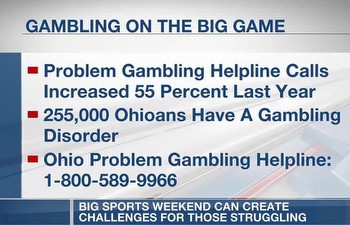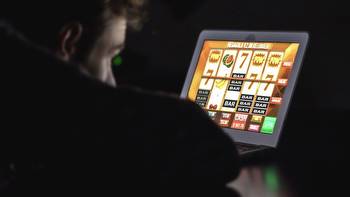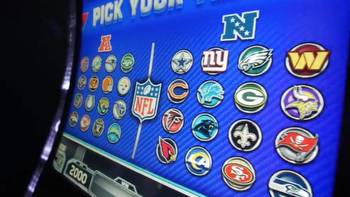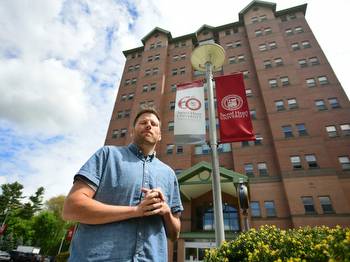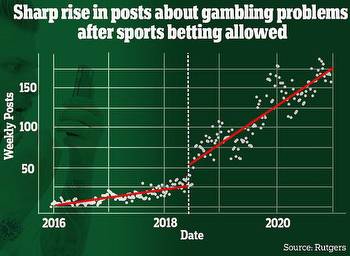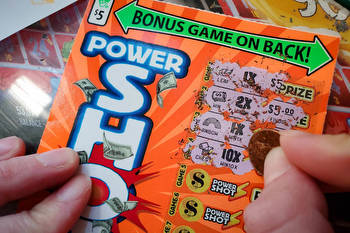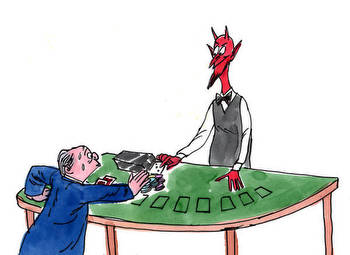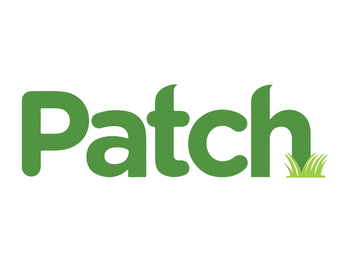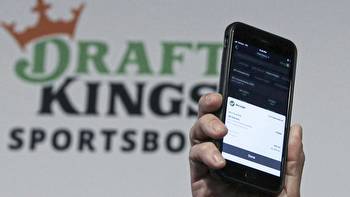America's Gambling Crisis Escalates: 'No Guardrails'

Online gambling, an emerging public health emergency, is threatening young Americans.
“I have patients who gamble in the shower. I have patients who gamble before they get out of bed in the morning. I have patients who gamble while they are driving. There are no guardrails,” said Harry Levant, an addiction therapist.
Movieguide® recently reported on a teen who warned the public about gambling addiction:
In an interview with Good Morning America last year, a 19-year-old shared his struggles with gambling, an addiction he fell into due to easy access to online gambling sites. In a follow-up with the pseudonymously named “Steve,” GMA found that it is incredibly hard for those exposed to gambling at a young age to overcome the addiction.
“I really felt like I had put it behind me,” said the teen, who relapsed after multiple months away from the addiction due to the proliferation of sports betting advertisements. “It was just the temptation of sports betting, you know, all the ads. I’m not going to say that the ads are the reason I did it, but just constantly being reminded of it,” he said.
Steve had completed three months of rehab before his relapse and had been one month clean when he talked with GMA. He plans to continue battling the addiction as he heads off to college and will work with his sponsor while he is away from home.
“According to a new Siena College poll, the majority of online bettors are young men, and nearly half of them feel they’re betting more than they should,” CBS News reported.
26-year-old Joe Ruscillo, a former gambler, is one of many who would max out every paycheck on gambling. He would bet constantly, even at midnight or at family events.
“I would place a bet on anything, anywhere, at any time,” he said.
CBS notes that since the Supreme Court allowed sports betting in 2018, the number of addicted gamblers has gone up significantly.
“So far, 38 states and Washington D.C. have legalized sports betting,” the news source continued. “In the five years since New Jersey legalized online sports gambling, calls to the state’s problem gambling helpline nearly tripled. The largest caller demographic: ages 25-34.”
The Guardian reported in December, “The United States is heading into a ‘quagmire, if not crisis,’ of gambling addiction among young people, according to counselors and clinicians – prompting calls for a regulatory crackdown.”
Support clinics have received record levels of patients and calls.
“Calls to gambling helplines in most states in America are up, by sheer numbers,” said UCLA co-director of gambling studies Timothy Fong. “More and more younger clients– aged 25 and under – are seeking treatment.”
Levant, who believes that gambling is a public health emergency, says that many of the young men he sees have betted all they have, from student loans to inheritances.
“It almost feels like binge drinking or methamphetamines, where they are going on benders,” said Evan Ozmat, a Ph.D. student in psychology at the University at Albany. “They’ll make bets and bets and bets and bets and then wonder, ‘how…did I get here?’”
Ruscillo believes that the sportsbooks and commercials make it look very attractive to wager money. However, gambling companies and associations refuse to acknowledge the problem or place preventive measures but put the responsibility back on the gambler.
“It takes the entire onus, puts it back on the individual,” Levant said. “To take an addictive product like gambling and microbetting, deliver it in light speed with the use of artificial intelligence, and then say to people, ‘But now use this responsibly,’ it is wrong.”
The president of the American Gaming Association, Bill Miller, denies that gambling addiction has increased since the Supreme Court’s action in 2018.
“I don’t believe that there is an addiction to mobile betting any more than there is an addiction to utilization of your phone for any other reason,” Miller said.
Along with advocacy, Levant takes a legal approach to the issue. He teamed up with storied law professor Dick Daynard to file “the first in what they say will be a series of lawsuits, suing DraftKings in Massachusetts for deceptive advertising, claims DraftKings says it ‘disagrees with.’”








